Shastra Deo
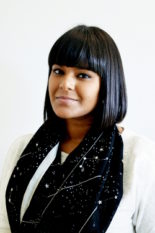 Shastra Deo was born in Fiji, raised in Melbourne, and lives in Brisbane. She holds a Bachelor of Creative Arts in Writing and English Literature, First Class Honours and a University Medal in Creative Writing, and a Master of Arts in Writing, Editing and Publishing from The University of Queensland. Her work has appeared in Cordite, Peril, Uneven Floor, and elsewhere. She is the recipient of the 2016 Arts Queensland Thomas Shapcott Poetry Prize; her debut collection, The Agonist, is forthcoming from UQP in September 2017.
Shastra Deo was born in Fiji, raised in Melbourne, and lives in Brisbane. She holds a Bachelor of Creative Arts in Writing and English Literature, First Class Honours and a University Medal in Creative Writing, and a Master of Arts in Writing, Editing and Publishing from The University of Queensland. Her work has appeared in Cordite, Peril, Uneven Floor, and elsewhere. She is the recipient of the 2016 Arts Queensland Thomas Shapcott Poetry Prize; her debut collection, The Agonist, is forthcoming from UQP in September 2017.
Road Trip
In the summer of 1995 my mother and I took
a road trip, followed the Murray River
all the way up to Echuca. Our lives were bundled up
in garbage bags, weighing down the trunk, and at the start
the tiny hatchback could barely make it up the hills. The engine
was as ragged as my mother’s breathing.
Every twenty kilometers we’d stop and she’d throw
a bag into the river. We would watch it
long enough to make sure it would sink, then drive on, lighter
and lighter. I don’t remember the trip back, but I imagine it must have been
like the drive past the redgum wharf: the windows down,
the freshwater wind soaking my hair.
The engine was thrumming and I felt as though
I could outrun anything.
Salt, Sugar
You never told me how it happened—bones trembling
beneath your skin, fluid collecting in your joints,
vertebrae ready to snap as the pressure
built at the base of your skull.
On autopsy they found bubbles in your brain,
your lungs swollen and soaked in sea-water,
ribs caved in. Paradoxical breathing—
your documented cause of death.
They didn’t stop searching until they found the sorrow,
tucked away in your thoracic viscera, the longing
distilled in the pedicle of your liver, hunger
hidden in the mitral valve of your heart,
didn’t stop until they had you cut and gutted like a mackerel
on a Sunday afternoon. In the low light your hands shone
phosphorescent like fish scales. Somewhere, the sea
stretches out for you, gleaming with promise.
Pass me the salt, sugar—you smelled of old empires
and the smoke of sacrifice—because salt preserves
and it purifies. You had the sea in your veins,
before they filled you up with chemicals.
Pass me the shovel, lover. It’s just you
and me, and I’m still waiting for you
to get up and walk away.
 Mindy Gill completed her Honours in Creative Writing at QUT. She has won the Tom Collins Poetry Prize, a Wheeler Centre Hot Desk Fellowship and her work has appeared or is forthcoming in Voiceworks, Tincture, Hecate, Australian Poetry Journal, and Island Magazine. She is an editor at Peril Magazine.
Mindy Gill completed her Honours in Creative Writing at QUT. She has won the Tom Collins Poetry Prize, a Wheeler Centre Hot Desk Fellowship and her work has appeared or is forthcoming in Voiceworks, Tincture, Hecate, Australian Poetry Journal, and Island Magazine. She is an editor at Peril Magazine. Paul Dawson’s first book of poems, Imagining Winter (IP, 2006), won the IP Picks Best Poetry Award in 2006, and his work has been anthologized in Contemporary Asian Australian Poets (Puncher & Wattmann, 2013), Harbour City Poems: Sydney in Verse 1888-2008 (Puncher & Wattmann, 2009), and the Newcastle Poetry Prize Anthology, 2016 (Hunter Writers Centre, 2016). Paul teaches in the School of the Arts and Media at the University of New South Wales.
Paul Dawson’s first book of poems, Imagining Winter (IP, 2006), won the IP Picks Best Poetry Award in 2006, and his work has been anthologized in Contemporary Asian Australian Poets (Puncher & Wattmann, 2013), Harbour City Poems: Sydney in Verse 1888-2008 (Puncher & Wattmann, 2009), and the Newcastle Poetry Prize Anthology, 2016 (Hunter Writers Centre, 2016). Paul teaches in the School of the Arts and Media at the University of New South Wales.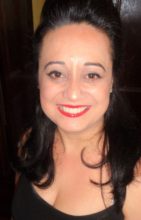 Annie Blake is an Australian writer who started school without knowing any English. She has been published in Verity La, Vine Leaves Literary Journal, About Place, Australian Poetry Journal and Cordite Poetry Review, forthcoming in Southerly and GFT Press. Her poem ‘These Grey Streets’ has been nominated for the 2017 Pushcart Prize. She is excited about the process of individuation, research in psychoanalysis, philosophy and cosmology. She is a former teacher who lives in Melbourne with her family. She blogs at annieblakethegatherer.blogspot.com
Annie Blake is an Australian writer who started school without knowing any English. She has been published in Verity La, Vine Leaves Literary Journal, About Place, Australian Poetry Journal and Cordite Poetry Review, forthcoming in Southerly and GFT Press. Her poem ‘These Grey Streets’ has been nominated for the 2017 Pushcart Prize. She is excited about the process of individuation, research in psychoanalysis, philosophy and cosmology. She is a former teacher who lives in Melbourne with her family. She blogs at annieblakethegatherer.blogspot.com Jessica Dionne lives in North Carolina and is currently pursuing an MA in Literature from The University of North Carolina at Charlotte. She recently presented poems at the Southwest Popular/American Culture Association annual conference in Albuquerque, New Mexico, and her work has been featured in The Longleaf Pine, Luna Luna Magazine, and Pour Vida Zine, and is forthcoming in The Mayo Review, and Rust + Moth.
Jessica Dionne lives in North Carolina and is currently pursuing an MA in Literature from The University of North Carolina at Charlotte. She recently presented poems at the Southwest Popular/American Culture Association annual conference in Albuquerque, New Mexico, and her work has been featured in The Longleaf Pine, Luna Luna Magazine, and Pour Vida Zine, and is forthcoming in The Mayo Review, and Rust + Moth.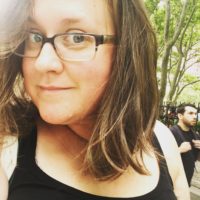 Jenna Cardinale writes poems. Some of them appear in Verse Daily, Pith, The Fem, and H_NGM_N. Her latest chapbook, A California, will be published by Dancing Girl Press in 2017. She lives in Brooklyn, NY.
Jenna Cardinale writes poems. Some of them appear in Verse Daily, Pith, The Fem, and H_NGM_N. Her latest chapbook, A California, will be published by Dancing Girl Press in 2017. She lives in Brooklyn, NY.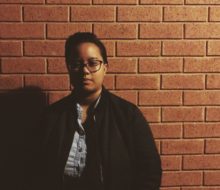 Darlene Silva Soberano is a young Filipino poet who immigrated to Australia at an early age. She is currently completing a Bachelor of Arts at Deakin University. This is her first published poem. You can find her on Twitter at @drlnsbrn
Darlene Silva Soberano is a young Filipino poet who immigrated to Australia at an early age. She is currently completing a Bachelor of Arts at Deakin University. This is her first published poem. You can find her on Twitter at @drlnsbrn R. D. Wood is of Malayalee and Scottish descent and identifies as a person of colour. He has had work published or that is forthcoming from Southerly, Jacket2, Best Australian Poetry, JASAL and Foucault Studies. His most recent collection of poems is Land Fall
R. D. Wood is of Malayalee and Scottish descent and identifies as a person of colour. He has had work published or that is forthcoming from Southerly, Jacket2, Best Australian Poetry, JASAL and Foucault Studies. His most recent collection of poems is Land Fall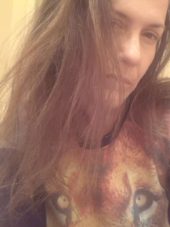 Anne Walsh is a poet and a story writer. Her work has been published widely in print and online. She has been shortlisted for the Newcastle Poetry Prize twice and for the ACU Prize for Literature. Her first collection of poems, I Love Like a Drunk Does, was published by Ginninderra Press (2009, Australia). Her work has also been published in the U.S., including a short story, ‘The Rickman Digression’, by Glimmer Train. Her second book of poems, Intact, is forthcoming with Flying Island Press.
Anne Walsh is a poet and a story writer. Her work has been published widely in print and online. She has been shortlisted for the Newcastle Poetry Prize twice and for the ACU Prize for Literature. Her first collection of poems, I Love Like a Drunk Does, was published by Ginninderra Press (2009, Australia). Her work has also been published in the U.S., including a short story, ‘The Rickman Digression’, by Glimmer Train. Her second book of poems, Intact, is forthcoming with Flying Island Press.